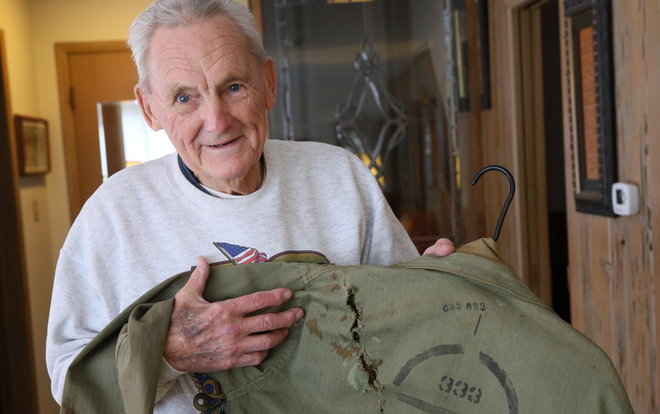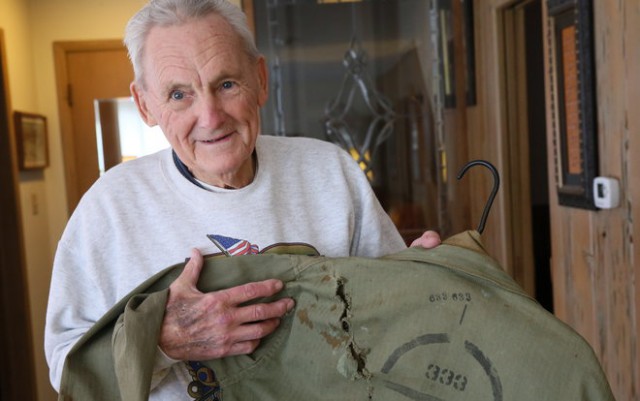A World War II veteran from Rock Hill has shared his recollections of the war, for the first time in his entire life. He never discussed the war with anyone, except his very close family members. The centerpiece of his memories is an island that became a killing field, when US Marines landed on the island and faced an extremely fierce response.
At the height of World War II, Raburn Miller was ordered to leave for the Pacific Ocean on a mission with 7000 other soldiers. Miller and his comrades spent more than a week waiting for the next order. They were then instructed to leave for the infamous battlefields of Iwo Jima – an island under Japanese control. Weeks before Miller and his comrades were ordered to head to Iwo Jima, American troops had landed and thousands of them were being killed battling the Japanese Army. The task given to 147th Infantry – Miller was part of that infantry regiment – was to relieve the marines stuck on the island.
US Marines had attacked the island on 19th February 1945, which started fierce fighting between the US Army and the Japanese Army. The fighting ended on 26th March 1945. A total of 70000 US troops landed on the island. The island was defended by 18000 well-equipped Japanese troops, who had a height advantage over their enemy. After 36 days of fierce fighting, the US Army had lost close to 7000 soldiers and 20000 were badly wounded. US troops could only capture 216 Japanese soldiers. The final death toll for the Japanese Army rose to 16000 by the end of the battle.
The task given to the 147th Infantry was to help the marines fight the remaining Japanese soldiers on the island. As Miller and his fellow soldiers drew closer to the island, they realized they were in grave danger. Japanese snipers were positioned on the heights of Mount Suribachi. The Japanese clearly had an edge over 147th Infantry’s boat, which was quite an easy target. Nervousness grew stronger in the crew as they approached the island. Luckily the snipers were busy fighting with the marines already present on the island; this gave Miller and his comrades a chance to land on the island safely, which they eventually did, The State reports.
Upon arriving at Iwo Jima, Miller was stationed as a gunner at the headquarters. But he didn’t like this position. He was young and he wanted to be out there, where all the action was happening. He managed to get on night patrol duty and helped marines in many tasks. He had built a small makeshift lamp out of a can and some kerosene oil, which he used to write letters to his mother during the war.
He contracted malaria during his stay on the island, and medications that were given to him made his skin pale and yellow. Though he survived the malaria, the side effects of the medications stayed with him for a long time.
Miller is now 99, and still as energetic as he used to be during his time in the war. He is an active member of his community, is a regular churchgoer and does his grocery shopping himself on his mobility scooter.
Want to become a trivia master? Sign up for our War History Fact of the Day newsletter!
People like Miller are an asset to humanity. Anyone who lived through the World Wars experienced so much that we can never imagine the immensity of their pain and suffering.

